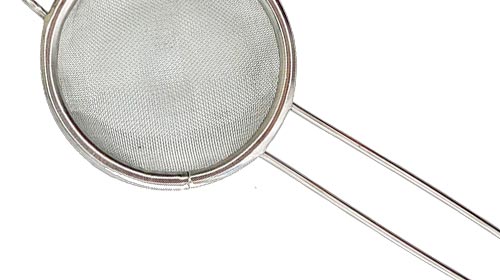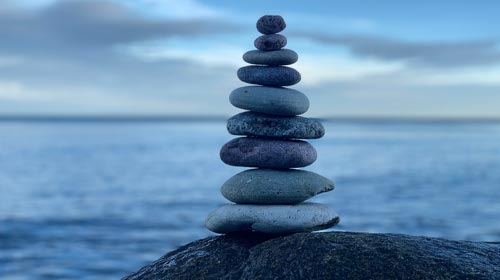Wabi-Sabi (侘寂): The art of seeing perfection in imperfection – and how our tea plants and tea bowls embody this philosophy
Wabi-sabi is not a short-lived trend. It is a centuries-old, deeply felt Japanese way of life. Wabi-sabi describes the quiet beauty of imperfection, transience, and simplicity. It is a focus on the essential—on what doesn't shout loudly, but rather quietly works. This philosophy is reflected not only in ancient temples or the tea ceremony, but also very concretely in what we do at Growing Karma: in cultivating living tea plants, in shaping tea bowls that are no two alike—and in the belief that true beauty always carries a story.
What does Wabi-Sabi (侘寂) mean?
“Wabi” (侘) stands for the elegance of simplicity, for restraint, for things that do not have to shine to be effective.
“Sabi” (寂) refers to age, the traces of time, the knowledge that everything passes away – and is therefore valuable.
Wabi-sabi is closely linked to Zen Buddhism (禅仏教) and has been cultivated for centuries, especially in Japanese tea culture. Beauty lies not in perfection, but in truth.
Our tea plants – living expressions of Wabi-Sabi
When you cultivate one of our tea plants, you're growing more than just a bush. You're growing an individual. No two plants are alike – each reacts differently to light, soil, and water. Some leaves are strong and broad, others delicate and filigree. Sometimes a shoot grows crooked, sometimes a leaf remains smaller than expected – and yet (or perhaps precisely because of this), every Camellia sinensis you receive from us is truly unique.
This is wabi-sabi in its living form : the acceptance and appreciation of what is organic, idiosyncratic, and imperfect. Our tea plants are grown in true permaculture; they are not standardized, not optimized—they are real.
Tea bowls with soul – no two are alike
Our handcrafted matcha and tea bowls are also inspired by the wabi-sabi philosophy. Whether it's the deliberately uneven glaze, small irregularities in the clay, or visible traces of the firing process – all this makes each bowl a personal companion.
In the Japanese tea ceremony (茶道), the tea bowl is not just a vessel, but a reflection of the moment. No two pieces are alike—and they shouldn't be. Our bowls follow this principle. They are handmade, not industrially pressed. When you drink from them, you hold something in your hand that will never be the same again.
Live Wabi-Sabi – with every sip, with every root
Wabi-sabi also means being mindful of what surrounds you. Not constantly reaching for the next, bigger, more perfect thing—but pausing and seeing what is there.
Maybe it's the slight crack in the tea bowl you feel every morning. Maybe it's the first bud on your tea plant, which you've nurtured for months. Maybe it's the feeling when you crack open matcha and the moment is simply yours.
Wabi-sabi doesn't begin with a purchase. It begins with the view.
With what you allow. With a love for the incomplete. And that's exactly what we want to give you: plants, bowls, rituals – that don't tell you how to live, but remind you that you've already been alive. And that's precisely what's beautiful.




Leave a comment
This site is protected by hCaptcha and the hCaptcha Privacy Policy and Terms of Service apply.